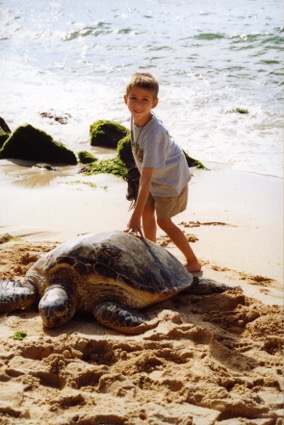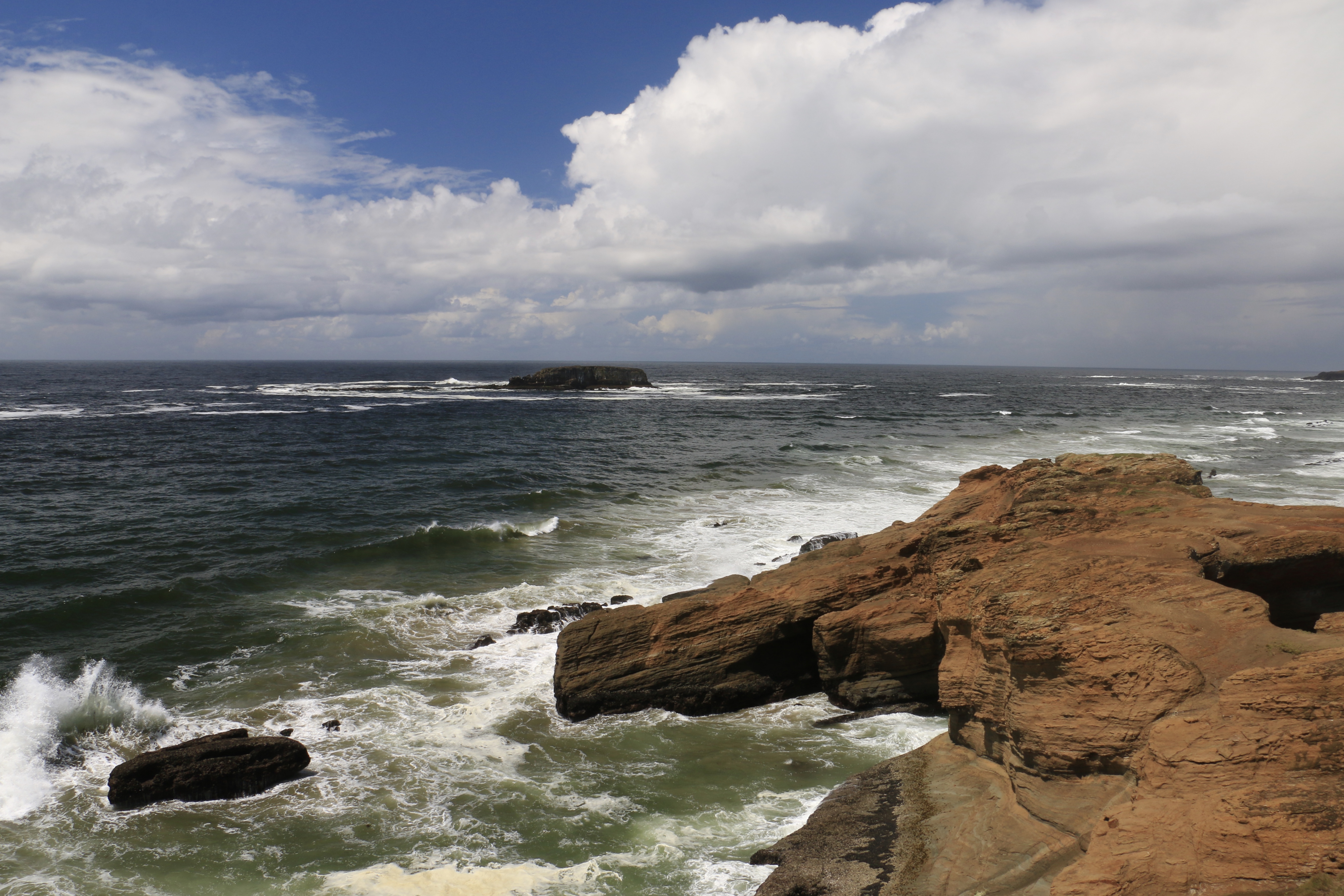
Photo of my first encounter with a sea turtle.
Ever hear of the saying, “the head, the hand and the heart?” I’ve learned that thinking, doing and feeling are key elements to bringing about change. If you know about an issue and you can feel the impacts of it, then you are more likely to care about it and take action. The same is true for me with my first encounter with the great sea turtles of Hawaii. When I was younger, I vividly remember the first time I came across one of these massive creatures on the beach and my heart raced as I approached this mysteriously large being that was probably much older than myself. On June 16th this week, people across the globe took part in world sea turtle day in an effort to spike awareness and emphasize the importance of their conservation.
When it comes to conservation problems, there is a lot to think about. In 2005, bycatch accounted for about 17% of all U.S. commercial fisheries catch. This has been a huge problem as a result of heavy fishing pressure with non-selective fishing gear, especially large purse seine and bottom trawl nets. To give perspective, the world’s largest supertrawler, the Atlantic Dawn, is longer than one and a half football fields with an otter trawl big enough for a 747 jet to pass through. As you might imagine, any fish or marine mammal that becomes trapped in this net has no chance of escaping and many in fact drown before being tossed back overboard upon retrieval. As horrifying as this may sound, it is our love for seafood and the sky rocketing demand to feed the population that has led to the implementation of such efficient technology.
So what is being done? For sea turtles, there has been a bit of a success story thanks to the efforts of conservation groups. It is now required by law that shrimp fishermen use Turtle Excluder Devices (or TEDs) to let sea turtles or other large bycatch escape deadly trawl nets. While sea turtle mortality has been reduced by 90 percent as a result, all six species of turtles found in U.S. waters are endangered and still faces threats of survival each year. The decline in marine species stretches far beyond sea turtles, as many species may be slipping into extinction without our knowing.

Otter Rock Marine Reserve.
That is where marine reserves are important. A Marine Reserve constitutes areas “protected from all extractive activities, except as necessary for monitoring or research to evaluate reserve condition, effectiveness, or impact of stressors.” This differs from a Marine Protected Area in that some fishing may be allowed rather than closing off all extractive activities. Both of these are important efforts to reduce fishing pressure on fish that have been harvested at an unsustainable rate.
Just as the sea turtles of Hawaii ignited my passion for their conservation, I see my position this summer with the Oregon Department of Fish and Wildlife as an opportunity to help bring attention to issues of ocean conservation. I look forward to better understanding the ways humans value, use and depend on marine resources and how Marine Reserves play a part in that. We’ve only just begun to skim the surface but there’s much more to dive into.


You’ve made a great connection in this post between your work you’re currently doing, World Sea Turtle Day, and your interaction with a sea turtle at a young age. I love how you’ve written this blog post – super interesting with the links as well! Can’t wait to see what else you end up posting about on this blog!
How many photos of Justin from days past involve a beach setting, I wonder?? I can’t wait to read about your encounters with Oregonians who are also so passionate about protecting coastal areas. I think it’s gonna be fun!
“Efficient” machines. Crazy, huh. I hope we have more time together to explore what’s here today so that we can know what we need to protect and defend tomorrow.